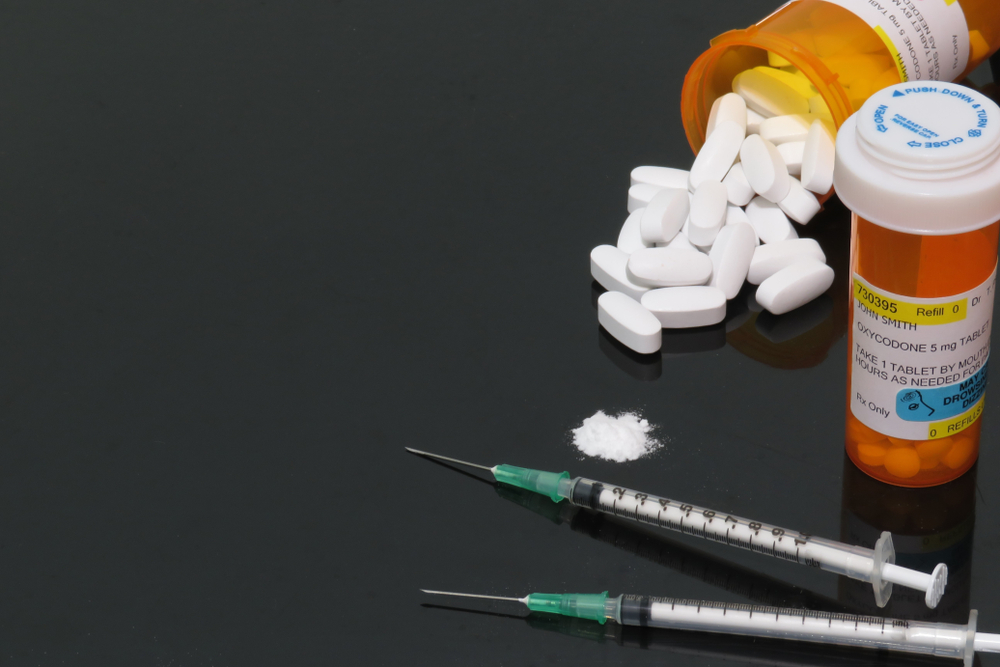
Opioid Detox Center for Veterans
The opioid epidemic is a horrific event that countless veterans and military service members continue to feel the consequences of. Whether it is a former military member or the average citizen, developing a dependence on opioids can be a slippery slope into the world of addiction and withdrawal. When a person quickly quits using opioids or dramatically reduces their consumption, they may experience a variety of physical and psychological symptoms known as withdrawal. Although enduring these symptoms can be difficult, being aware of them and understanding the timing can help people get ready for and efficiently handle the process at our opioid detox center.

How Long Does Opioid Withdrawal Last?
Individual physiology, type of opioid used, dosage, length of usage, and other variables can all affect how long opioid withdrawal takes to pass for a given person. The length of the withdrawal process, however, can be roughly estimated using a basic timeframe. It's crucial to keep in mind that this timeframe is flexible and may vary depending on the circumstances.
The opioid withdrawal timeline and symptoms include:
- Early withdrawal (6 to 12 hours): Withdrawal symptoms typically start within 6 to 12 hours after the last use of short-acting opioids or 30 hours after the last use of long-acting opioids. Initial symptoms like agitation, anxiety, sleeplessness, muscle pains, and excessive perspiration may be present at this stage.
- Peak withdrawal (days 1 to 3): Within the first three days, opioid withdrawal symptoms typically reach their climax. Intense drug cravings, stomach cramps, nausea, vomiting, diarrhea, dilated pupils, goosebumps (sometimes known as "cold turkey" skin), an elevated heart rate, and high blood pressure are all possible symptoms of this stage. There may also be psychological signs, including anxiety, despair, impatience, and mood swings.
- Subsiding symptoms (days 4 to 7): Many of the withdrawal's physical symptoms start to go away by the fourth day. Anxiety, depression, and insomnia may still be present, though, as well as other psychiatric symptoms. Muscle aches, weariness, and stomach trouble are a few examples of persistent physical symptoms.
- Post-acute withdrawal syndrome (can last from weeks to months): Some individuals may experience post-acute withdrawal syndrome (PAWS), a period of symptoms that lasts longer for certain people. After the acute withdrawal period, this state may last for weeks or even months. Anxiety, depression, irritability, exhaustion, difficulty concentrating, disturbed sleep patterns, and drug cravings are some of the symptoms of PAWS. However, there is a large range in the intensity and duration of PAWS symptoms.
Opioid withdrawal is a dangerous process that can cause a number of consequences for a person’s health. But exactly how severe can it get?
Can You Die From Opioid Withdrawal?
While the actual withdrawal from opioids rarely poses a life-threatening risk, problems brought on by severe withdrawal symptoms can occur. It is crucial to remember that the severity of symptoms can vary based on a number of variables, including the person's general health, the length and frequency of their opioid usage, and the specific opioids they are using. Rarely, withdrawal-related problems can result in life-threatening circumstances. However, the hazards can be reduced with the right medical guidance and assistance.
Dehydration brought on by profuse sweating, vomiting, and diarrhea is one possible complication of opiate withdrawal. Electrolyte imbalances and other problems brought on by dehydration may need medical attention. Additionally, there is a danger of aspiration, which occurs when vomit enters the lungs and may result in pneumonia or other illnesses if a person experiences severe vomiting.
Suicide is a potential concern as well. Withdrawing from opioids can be emotionally and mentally taxing, aggravating existing mental health issues like depression or anxiety. People may occasionally feel extraordinarily hopeless or depressed, which can raise their risk of self-harm or suicide. It is essential that people going through opioid withdrawal have access to the right mental health resources and assistance in order to deal with these issues.
Our Opioid Detox Program at Veterans in Recovery
It is strongly advised to seek medical supervision and support from the addiction specialists at our opioid detox center to ensure safety throughout this process. They can handle severe symptoms, offer appropriate monitoring, and offer solutions to avert future pitfalls. A healthcare practitioner should be consulted if you or someone you know is thinking about stopping using opioids but is worried about the withdrawal symptoms in order to create a unique plan that puts safety and well-being first.
After completing treatment in our veterans detox program, clients will have the chance to continue their care. We offer a number of rehab programs for veterans that not only helps them address their struggles but consider the unique experiences that someone with this background may live through as well. This is accomplished through a variety of therapy programs and methods.
To learn more about how our rehab for veterans can aid in the recovery of you or your loved one, contact Banyan Treatment Centers and speak with a specialist today.
Related Reading




